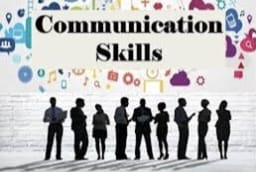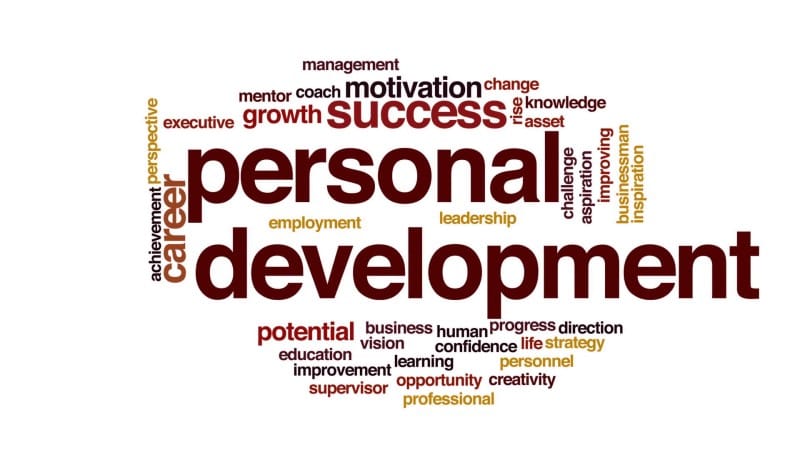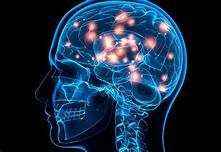Personality and Communication Skills: A Pathway to Personal and Professional Excellence
Personality and communication skills are foundational pillars of growth in both personal and professional domains. While personality shapes how individuals perceive the world and interact with others, communication skills determine how effectively those perceptions and interactions are expressed. Together, these attributes are essential in building relationships, fostering understanding, and achieving success across various aspects of life.
This exploration dives deeper into these two dimensions, offering insights, strategies, and examples to enhance both, while emphasizing their interconnectedness.

Understanding Personality
Personality encompasses the unique characteristics, behaviors, and emotional patterns that define an individual. It serves as the lens through which we perceive and respond to the world. Personality influences how we think, feel, and act in diverse situations. To better understand personality, frameworks like the Big Five Personality Traits provide a structured approach:
Openness to Experience
High Openness: Such individuals are curious, imaginative, and open to new ideas or experiences. They thrive on innovation and adapt well to change. For instance, a designer brainstorming groundbreaking concepts exhibits high openness.
Low Openness: These individuals value tradition, routine, and established methods. A quality control professional focused on maintaining standard procedures often exemplifies this trait.
Conscientiousness
High Conscientiousness: Highly conscientious people are dependable, organized, and goal-oriented. They excel in roles requiring structure and responsibility, such as project managers ensuring timelines are met.
Low Conscientiousness: Individuals low in this trait may favor spontaneity and flexibility, often flourishing in dynamic or creative environments like startups or artistic endeavors.
Extraversion
Extraverts: Outgoing and energetic, extraverts thrive in social settings. They often excel in roles involving networking or public engagement, such as sales or event planning.
Introverts: Reflective and introspective, introverts prefer smaller groups or solitude. Their strength lies in focused, independent work, such as research or writing.
Agreeableness
High Agreeableness: Compassionate, cooperative, and empathetic, agreeable individuals build harmonious relationships. Healthcare workers or counselors frequently embody this trait.
Low Agreeableness: Less agreeable people may prioritize logic over emotion and prefer competitive environments, excelling in analytical roles like data science or law.
Neuroticism
High Neuroticism: Emotionally sensitive and prone to stress, these individuals may struggle in high-pressure roles but thrive in supportive environments.
Low Neuroticism: Emotionally resilient and calm, they adapt well to stress, making them ideal for crisis management or leadership positions.
Your personality directly impacts how you communicate and engage with others. For example, an agreeable and extraverted individual may excel in collaborative discussions, while an introverted but conscientious person might shine in detailed, structured communication.

The Role of Communication Skills
Communication skills are the tools that bridge the gap between thoughts and expression. They enable individuals to convey ideas, emotions, and intentions effectively. These skills are typically categorized into three main forms:
Verbal Communication
Involves spoken language, making it the most direct way to share ideas.
Key components include clarity, tone, vocabulary, and articulation.
For example, a teacher explaining complex concepts in simple terms demonstrates strong verbal communication.
Non-verbal Communication
Encompasses body language, gestures, facial expressions, posture, and eye contact.
Non-verbal cues often reveal more than spoken words. Misaligned non-verbal signals, like avoiding eye contact during a confident statement, can undermine your message.
For instance, a leader maintaining open posture and steady eye contact instills confidence in their audience.
Written Communication
Includes emails, reports, messages, and creative writing.
Effective written communication is clear, concise, and tailored to the audience.
Consider a marketing professional crafting persuasive ad copy to engage customers as an example of excellent written communication.
Interplay Between Personality and Communication Skills
The connection between personality and communication skills is dynamic. Your personality significantly influences your preferred communication style, and in turn, communication skills can shape how others perceive your personality.
Extraverts: Naturally gravitate towards verbal and non-verbal communication, often excelling in public speaking or networking.
Introverts: May prefer written communication, where they can carefully articulate their thoughts.
Conscientious Individuals: Tend to prioritize precision, ensuring that their communication is detailed and accurate.
Agreeable Personalities: Use empathetic and collaborative language, fostering trust and harmony in interactions.
For instance, a highly agreeable team leader might focus on nurturing a positive work environment by encouraging open dialogue, while a conscientious project manager ensures every detail of their communication aligns with project goals.

Strategies for Enhancing Communication Skills
Regardless of your personality type, communication skills can be refined through awareness, practice, and feedback. Here’s how:
- Self-Awareness
Recognize your personality traits and how they influence your communication style.
Identify areas where improvement is needed, such as clarity in verbal communication or alignment in non-verbal cues. - Active Listening
Listen attentively without interrupting, showing genuine interest through verbal affirmations or non-verbal signals.
For instance, nodding and maintaining eye contact during conversations demonstrates engagement. - Empathy
Try to understand the perspective of others to foster meaningful connections.
For example, empathizing with a colleague’s concerns during a disagreement can help resolve conflicts. - Clarity and Conciseness
Avoid ambiguity and unnecessary jargon.
Focus on delivering your message effectively, such as summarizing key points in meetings. - Non-verbal Alignment
Ensure gestures, expressions, and tone complement your spoken words.
Open body language and a calm tone during discussions convey confidence and approachability. - Feedback
Actively seek feedback on your communication style.
Constructive criticism can highlight areas for improvement, such as tone modulation or written grammar. - Adaptability
Tailor your communication to suit different audiences and contexts.
For example, a formal presentation for executives requires a different tone than a brainstorming session with peers.

Balancing Personality and Communication
Striking a balance between innate personality traits and learned communication skills is crucial for success.
Reserved Individuals: Practice stepping out of comfort zones by engaging in social interactions, such as networking events.
Highly Extraverted Individuals: Focus on active listening to avoid dominating conversations.
For instance, an introverted writer who begins participating in speaking engagements can diversify their communication abilities, enhancing their professional impact.
Overcoming Challenges
Shyness
Start with small, informal groups before progressing to larger audiences.
Relaxation techniques, like deep breathing, can help manage anxiety.
Miscommunication
Clarify and confirm understanding to avoid confusion.
Avoid making assumptions by asking open-ended questions.
Conflict
Stay calm and composed when disagreements arise.
Use “I” statements, such as “I feel concerned about this timeline,” to express feelings non-confrontationally.
Written Clarity
Proofread all written messages to ensure accuracy and coherence.
Tools like grammar checkers can refine your writing.

The Impact of Personality and Communication Skills
When effectively aligned, personality and communication skills lead to transformative benefits:
Professional Growth
Effective communication enhances leadership, teamwork, and problem-solving.
For instance, clear communication during negotiations builds credibility and trust.
Personal Relationships
Strong communication strengthens emotional bonds, deepens trust, and resolves conflicts effectively.
Self-Confidence
Improved communication leads to better interactions, creating a positive feedback loop that boosts self-assurance.
Adaptability
Aligning personality with communication strategies fosters resilience, making it easier to thrive in different environments.
Personality and communication skills are the cornerstones of interaction in an interconnected world. By understanding your personality and refining your communication abilities, you can create meaningful relationships, overcome challenges, and achieve your goals. Whether you are a natural communicator or working to improve, success lies in self-awareness, practice, and a willingness to adapt. Together, personality and communication skills empower individuals to thrive in every facet of life.
https://nimblefoundation.org/
https://www.facebook.com/nimblefoundation1
https://www.linkedin.com/in/satish-kakri-17224417/
https://nimblefoundation.org/our-clients.html
Thanks for reading.






















